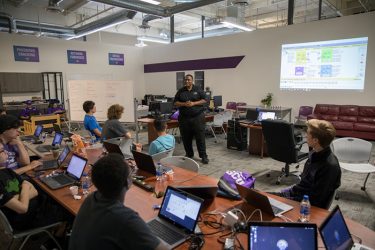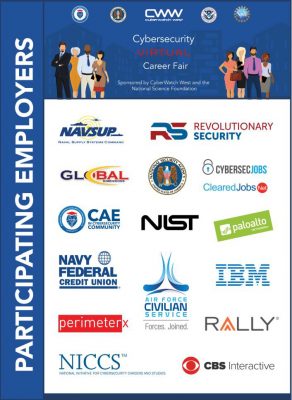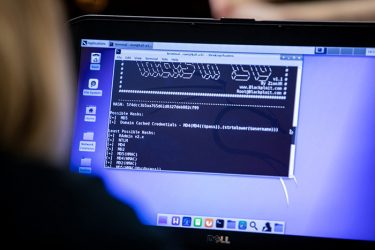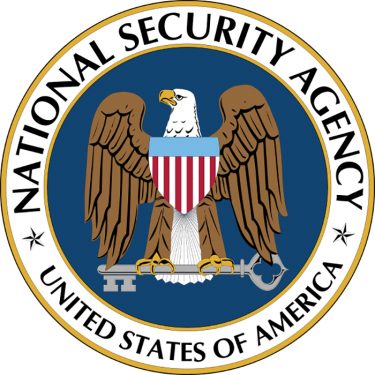
By Lana Sweeten-Shults
GCU News Bureau
Grand Canyon University’s IT with an Emphasis in Cybersecurity Bachelor's Degree program just received a significant upgrade that will make its graduates even more desirable in the industry, particularly when it comes to landing jobs in the FBI, CIA and other government entities.

The National Security Agency and the Department of Homeland Security this month awarded GCU the prestigious National Center of Academic Excellence in Cyber Defense Education (CAE-CD) designation, based on the IT-cybersecurity bachelor's degree program. The designation is valid through the 2024 academic year.
Prospective programs are named a CAE-CD only after meeting stringent criteria.
“This is a big deal,” said Dr. Heather Monthie, Associate Dean of the College of Science, Engineering and Technology. “This is essentially their stamp of approval on our cybersecurity program, and so that opens up employment opportunities for our students and our graduates.”
Karen Leuschner, National Center of Academic Excellence Program Manager, noted the critical shortage in the country of professionals with cybersecurity skills.
According to the National Cyber Strategy, “A highly skilled cybersecurity workforce is a strategic national security advantage” and the government will continue to ”invest in and enhance programs that build the domestic talent pipeline.”
“Education is the key to promoting these ideals,” Leuschner said, adding how the University’s ability to meet the high standards of the CAE-CD designation “will serve the nation well in contributing to the protection of the National Information Infrastructure.”
Regionally accredited two-year, four-year and graduate-level institutions in the United States can apply for the designation, which ensures students are learning concepts and skills deemed important by the NSA and Department of Defense.

GCU became eligible to apply to become a CAE-CD after its first cybersecurity students graduated in 2018.
“From there, it’s about a yearlong process to document,” Monthie said of the rigorous vetting process.
The college had to show students’ involvement in cybersecurity competitions and that they have access to cybersecurity professionals, such as speaker panels and guest lecturers who work in industry.
“They looked at our Cyber Center of Excellence and whether we have an established entity like that. They looked at our advisory board, at our faculty and the credentials of our faculty, and if our faculty are publishing or presenting at conferences," Monthie said. "Essentially, are they making a contribution to furthering the discipline?”
The NSA and DHS also want to see that applicants are taking a multidisciplinary approach, meaning, does the University offer cybersecurity in various colleges and various disciplines?
At GCU, cybersecurity programs have been built not just into CSET but also into the Colangelo College of Business, for example, which offers a Master’s Degree of Business Administration in Cybersecurity.

“They also like that we have a hands-on approach,” Monthie said. “The students are doing hands-on labs, hands-on learning.”
One of the standards in receiving the designation is to show that the University is educating employees on how to stay cyber safe, which Grand Canyon Education’s IT Department does. GCE IT sends information to employees that detail how to create secure passwords, for example, or how to prevent social engineering attacks.
“The other part is we have to show involvement in K-12 outreach. … So, collaboration with K-12 schools, collaboration with community colleges and our workshops,” said Monthie. She detailed the various outreach avenues the college has taken through faculty, Enrollment teams and K-12 Educational Development.
“We have our Discover events. We also have Cyber Saturdays (at the Cyber Center), where the community can come in and learn about cybersecurity,” she said.

GCU now is one of five educational institutions in the state – part of 272 institutions across the country and the Commonwealth of Puerto Rico – that has been named a National Center of Academic Excellence in Cyber Defense.
What that means for students is that they’ll have more access to government jobs.
“Oftentimes, the government sector will recruit from schools that have this designation because they know they have been vetted by the NSA and DHS as an approved program," Monthie said. "This opens up opportunities within the government sector, so things like the Department of Defense, NSA, Department of Homeland Security, organizations like the CIA.”
Those government organizations have been focused more than ever on cyber crimes, particularly after 9/11 changed the landscape of how those organizations defend the country.

Retired FBI Special Agent Executive John Iannarelli, who spoke to GCU students earlier this year, said, “When I joined the FBI, I joined to catch bad guys. I joined to investigate bank robberies and kidnappings. But the FBI changed as a result of 9/11. We are now an intelligence-gathering organization. We still arrest people, but we are all about getting intelligence and trying to predict these things.”
Iannarelli emphasized how the country’s defense strategies have transformed in the cyber age.
“You know, everything is changing so much,” he said. “I don’t know why anybody’s going to rob a bank or grocery store again when you can sit in the comfort of your home behind a computer screen and steal way more money than you can at gunpoint. I’ve seen more and more cyber-related crimes, but I’m also seeing more and more cybertechnology used to solve crime.”

And that’s where GCU and other educational institutions come in.
With the CAE-CD designation, the University’s students now will be eligible to participate in virtual career fairs, such as the CAE Cybersecurity Virtual Career Fair. Employers such as Air Force Civilian Service, the NSA, IBM and the National Institute of Standards and Technology recruit from those fairs.
In addition to the world of government cyber jobs opening up to students, the CAE-CD designation means another important thing: “It opens up scholarship opportunities for our students,” Monthie said, as well as grant opportunities for faculty.
With GCU having been vetted by the NSA and DSA, she added how employers, particularly government employers, know “the students are going to come in with the skills that they need.”
GCU senior writer Lana Sweeten-Shults can be reached at [email protected] or at 602-639-7901.
****
Related content:
GCU Today: GCU's culture embraced at rebooted cyber center
GCU Today: Code Red: GCU powers up cybersecurity focus
GCU Today: Experts bring cybersecurity insight out of the dark



































































